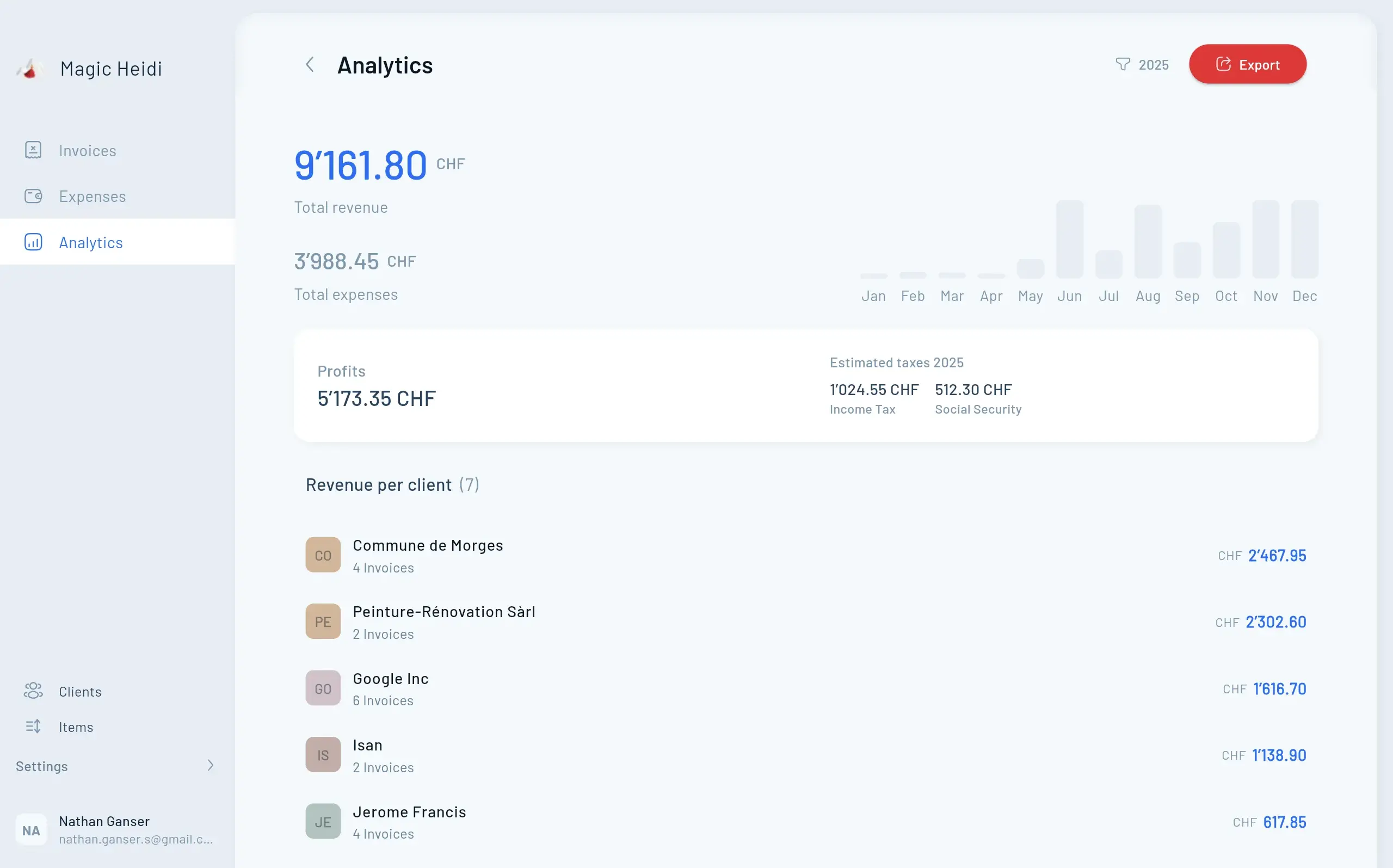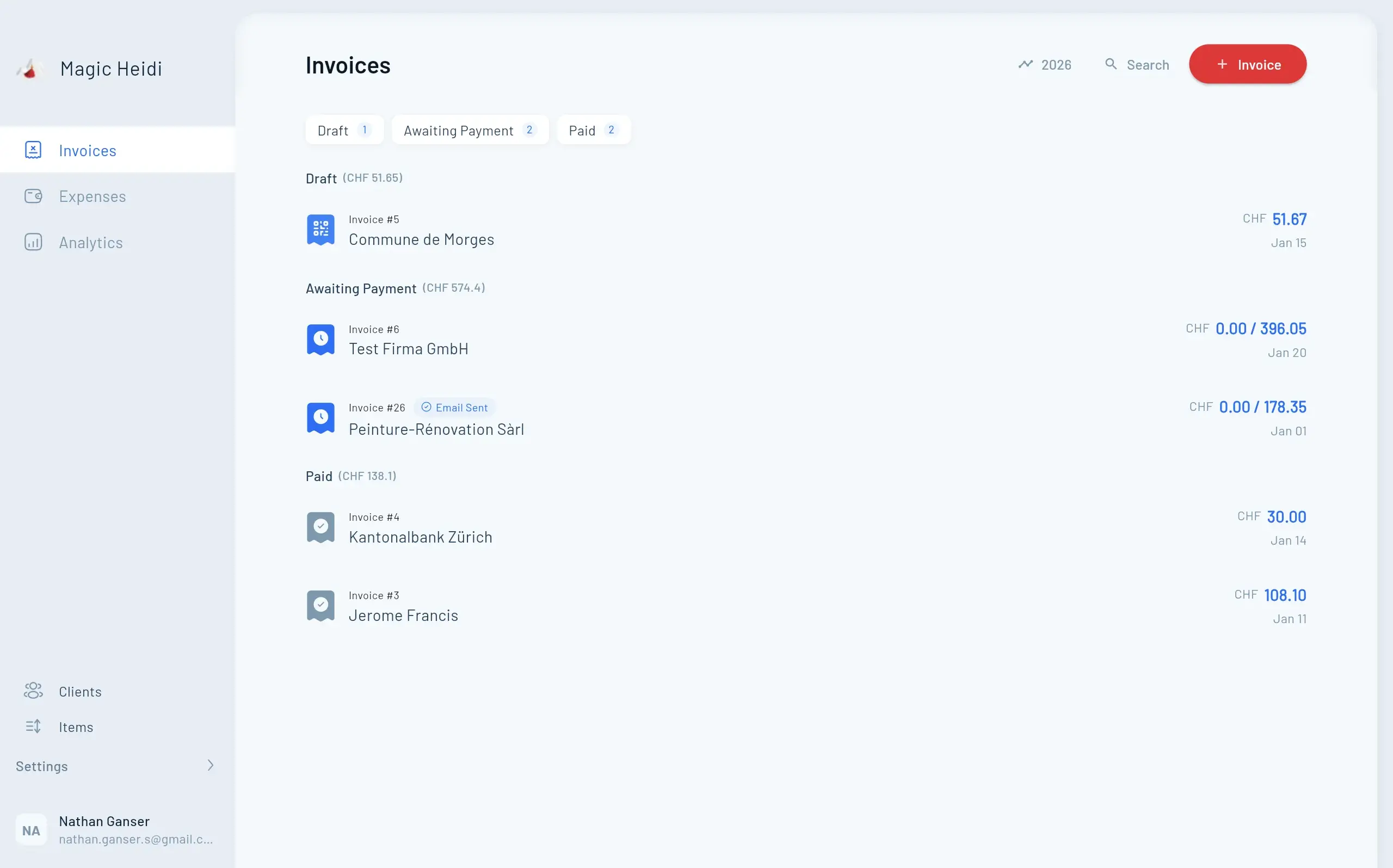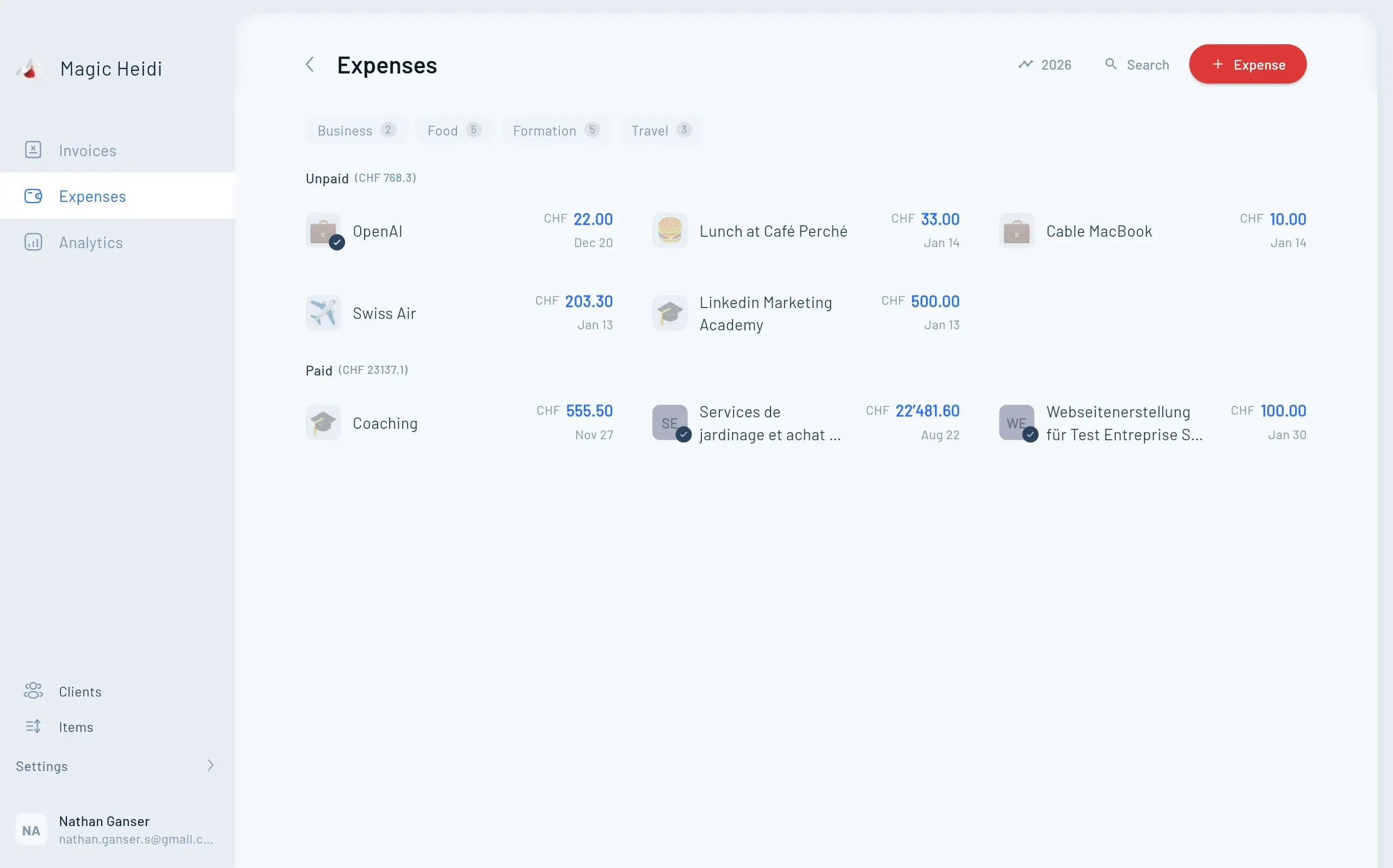1. Multiple Clients
Single client = Not self-employed, regardless of income. You're legally considered an employee even if you invoice them.
- Multiple clients establish independence
- Single CHF 10,000 client = employee relationship
- Client should pay employer social security
- High income doesn't override single-client rule








